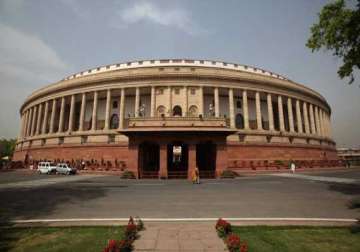New Delhi: The Centre today opposed in the Supreme Court the plea for legalising passive euthanasia by allowing a person in vegetative condition to die by withdrawing life-support systems, saying such issues should be debated and decided in Parliament and not by court.
Appearing before a five-judge Constitution Bench headed by Chief Justice R M Lodha, Attorney General Mukul Rohatgi opposed the petition and said that the issue should be left for the legislative body to decide.
The Centre also submitted that Law Commission in its reports had also opposed the idea of legalising euthanasia.
The bench, also comprising justices J S Khehar, J Chelameswar, A K Sikri, and R F Nariman, after a brief hearing asked the government to place Law reports before it and posted the case for hearing tomorrow when it will decide how to proceed with the case.
The bench was constituted to decide the contentious issue after a three-judge bench had on February 25 referred to case to larger bench to decide the issue saying it was extremely important to have a clear enunciation of law in view of inconsistent opinions in its previous judgement.
It had said that its earlier verdict of 2011 allowing passive euthanasia was delivered on a “wrong premise”. “In view of the inconsistent opinions rendered in Aruna Shanbaug case and also considering the important question of law involved which needs to be reflected in the light of social, legal, medical and constitutional perspective, it becomes extremely important to have a clear enunciation of law. Thus, in our cogent opinion, the question of law involved requires careful consideration by a Constitution Bench of this Court for the benefit of humanity as a whole,” the court had said.
The apex court had said that its earlier Constitution bench verdict, which was wrongly relied in Aruna Shanbaug case, had held that right to live with dignity will be inclusive of right to die with dignity but the judgement did not arrive at a conclusion for validity of euthanasia.
The direction had came on a PIL filed by NGO Common Cause which said when a medical expert opines that the person afflicted with terminal disease has reached a point of no return, then he should be given the right to refuse being put on life support system as otherwise it would only prolong his agony.
The NGO prayed for declaring right to die with dignity as a fundamental right and had sought direction to governments to adopt suitable procedures to ensure that the persons with deteriorated health or terminally ill should be able to execute living will & Attorney authorization termination of life.
The petitioner had contended that a person whose life was ebbing out should be allowed to die as the continuance of the life with the support system was an unnatural extension of the natural life span.
Latest India News
